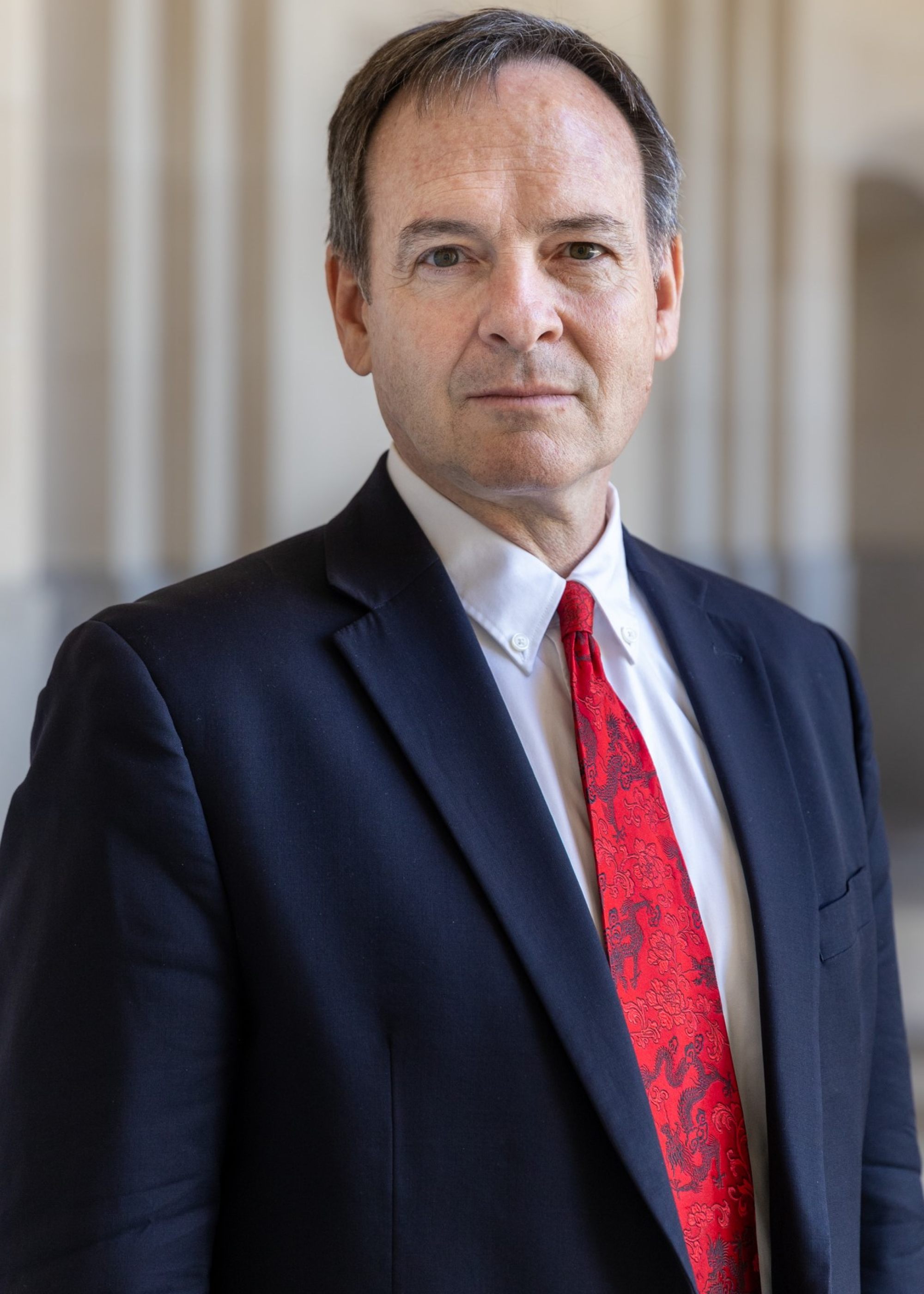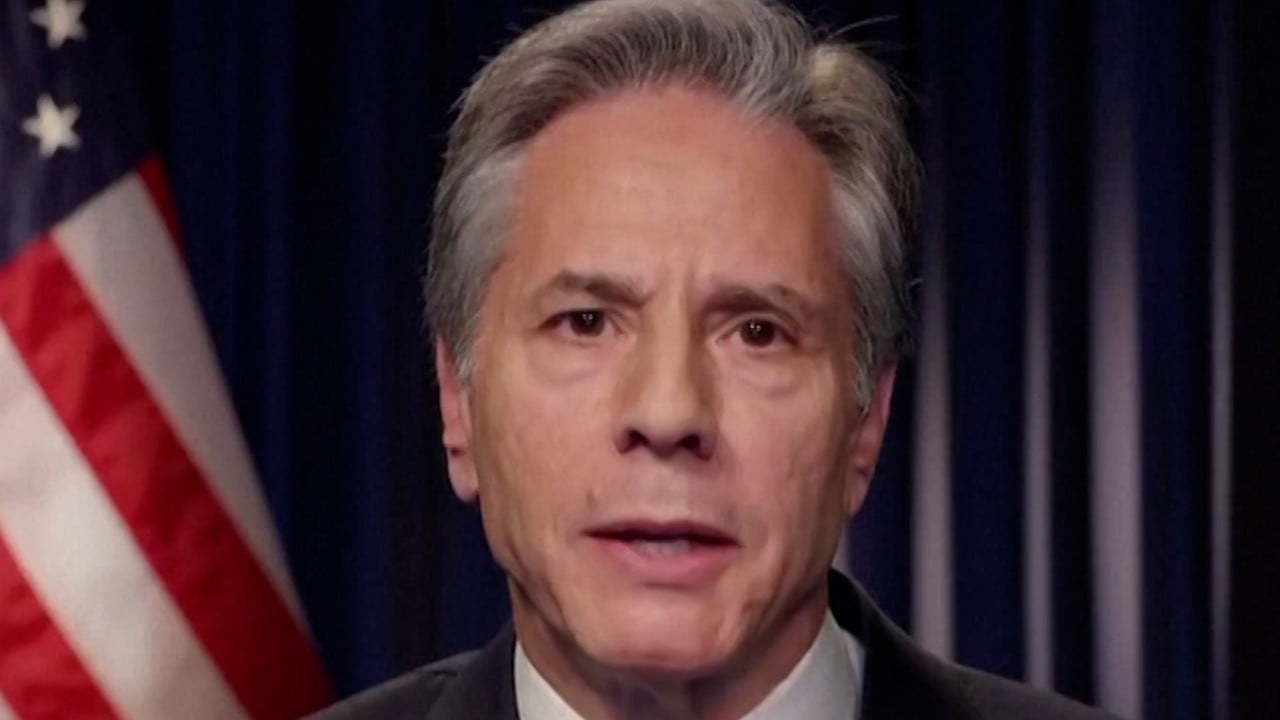
Top US and China envoys meet in Vienna, the highest in-person engagement since Xi and Biden in November
- US National Security Adviser Jake Sullivan and China’s top diplomat Wang Yi discuss Taiwan and Russia’s invasion of Ukraine in talks over two days, White House says
- Chinese state media confirms meetings and says ‘both sides agreed to continue making good use of this strategic communication channel’
US National Security Adviser Jake Sullivan held “candid” talks on Taiwan and the Russian war in Ukraine with China’s top diplomat Wang Yi for two days this week, the highest-level US-China engagement since presidents Xi Jinping and Joe Biden met last year.
In Vienna, Austria, on Wednesday and Thursday, “the two sides had candid, substantive, and constructive discussions on key issues in the US-China bilateral relationship, global and regional security issues, Russia’s war against Ukraine, and cross-strait issues, among other topics”, the White House announced.
“This meeting was part of ongoing efforts to maintain open lines of communication and responsibly manage competition,” it added.
“The two sides agreed to maintain this important strategic channel of communication to advance these objectives, building on the engagement between [Biden and Xi] in Bali, Indonesia, in November 2022.”
A senior Biden administration official briefing reporters after the meeting in Vienna said Sullivan and Wang met for more than eight hours over the two-day period.

China’s state news agency Xinhua reported around the same time as the White House statement that the two officials “held candid, in-depth, substantive, and constructive discussions on removing obstacles and stabilising the China-US relations”.
According to the Chinese readout, the Taiwan issue was high on the agenda during the talks.
“Wang Yi comprehensively elaborated on China’s solemn position on the Taiwan issue,” Xinhua added. “The two sides also exchanged views on international and regional issues of common concern, such as the Asia-Pacific situation and Ukraine.
Xinhua said the two sides agreed to make good use of the strategic communication channel, but stopped short of mentioning future engagement plans.
US climate envoy Kerry says China has invited him for talks
Since then, US officials including Treasury Secretary Janet Yellen and Washington’s ambassador to Beijing Nicholas Burns have expressed their willingness to resume talks with their Chinese counterparts.
On Thursday, China’s commerce minister Wang Wentao sat down with Burns to discuss trade and economic issues. That meeting was initiated at Washington’s request, according to the ministry.
While they did not discuss dates for a visit to Beijing by Blinken, “we do anticipate there’ll be engagements in both directions over the coming months”, she said.
“The earlier Chinese shutting down [of communication channels] was precisely because the Chinese thought ‘Oh, there’s nothing to negotiate. Whatever we do, the US is going to pursue the same policy, so why bother,’” Sun said.
Robert Daly, director of the Wilson Centre’s Kissinger Institute on China and the United States and a former US diplomat in Beijing, said that agreement on semantics could help explain the sudden re-emergence of high-level talks.
US must do more to punish Hong Kong leaders who undermine freedoms, panel hears
Biden administration officials had previously said that they wanted “guardrails” to prevent the US-China relationship from slipping into further confrontation, but Thursday’s White House readout did not use that term.
“China has rejected the United States’ calls for ‘guardrails’ for half a year, but it is fine with a move toward ‘stability’ – which means the same thing,” said Daly. “It is good that Washington and Beijing have found a term they can agree on.”
Other high-level engagements are expected to follow the Wang-Sullivan talks.
US Trade Representative Katherine Tai is planning to meet Wang Wentao during an Apec trade ministers’ session, set for May 25 and 26 in Detroit, Michigan, according to one US government official familiar with the matter.

And word is circulating that the Pentagon wants to set up a meeting between Defence Secretary Lloyd Austin and his Chinese counterpart Li Shangfu during the Shangri-La Dialogue in Singapore next month.
While China has not confirmed those prospective talks, Sun said that, given the recent improvements in engagement, “I would be very shocked if it doesn’t happen”.
Even as Biden moves ahead with talks aimed at bilateral stability, though, he faces significant political pressure at home to forge ahead with further restrictions on exports to, and investment in, China.
Following years of debate, Biden is expected to establish through executive order an outbound investment screening panel on export controls that would apply tighter blocks on sales of US technology to China.
China won’t back down on sovereignty, top diplomat tells Hong Kong lawmakers
Anti-China sentiment in Congress will make it difficult for Biden to back away from such a move.
Hours after the Sullivan-Wang meeting, the House Foreign Affairs Committee’s oversight and accountability subcommittee held a hearing on export controls. Representative Brian Mast, a Florida Republican who chairs the subcommittee, accused the Commerce Department of moving too slowly to cut off the sales to China.
“The Chinese Communist Party is using American technology to build more precise, more lethal weapons to sink our carriers, to kill our troops,” Mast said. “If Xi Jinping is gearing up for a fight, Joe Biden … is desperate to appease the enemy.”
Other events on the horizon will test Biden’s ability to keep engagement with Beijing intact, including the Apec meeting in Detroit, where USTR has said they would like to discuss economic coercion, a topic that will also be front and centre when officials from the US and other G7 countries meet in Hiroshima, Japan next week.

To Daly of the Kissinger Institute, “the test of the stabilisation effort” will not be whether Blinken or other high-ranking officials make it to Beijing in the near term. “It will be whether dialogue continues after the next major provocation, which can’t be far off.
“Will Beijing consider the stabilisation period ended if the US imposes further export controls, begins a CFIUS-like review of American investments in China, or criticises China’s human rights record?” he asked.
“Will the United States cut off interactions if a second Chinese spy balloon is discovered over its territory?
“True stability will require thick skins and political courage on both sides,” Daly said.


